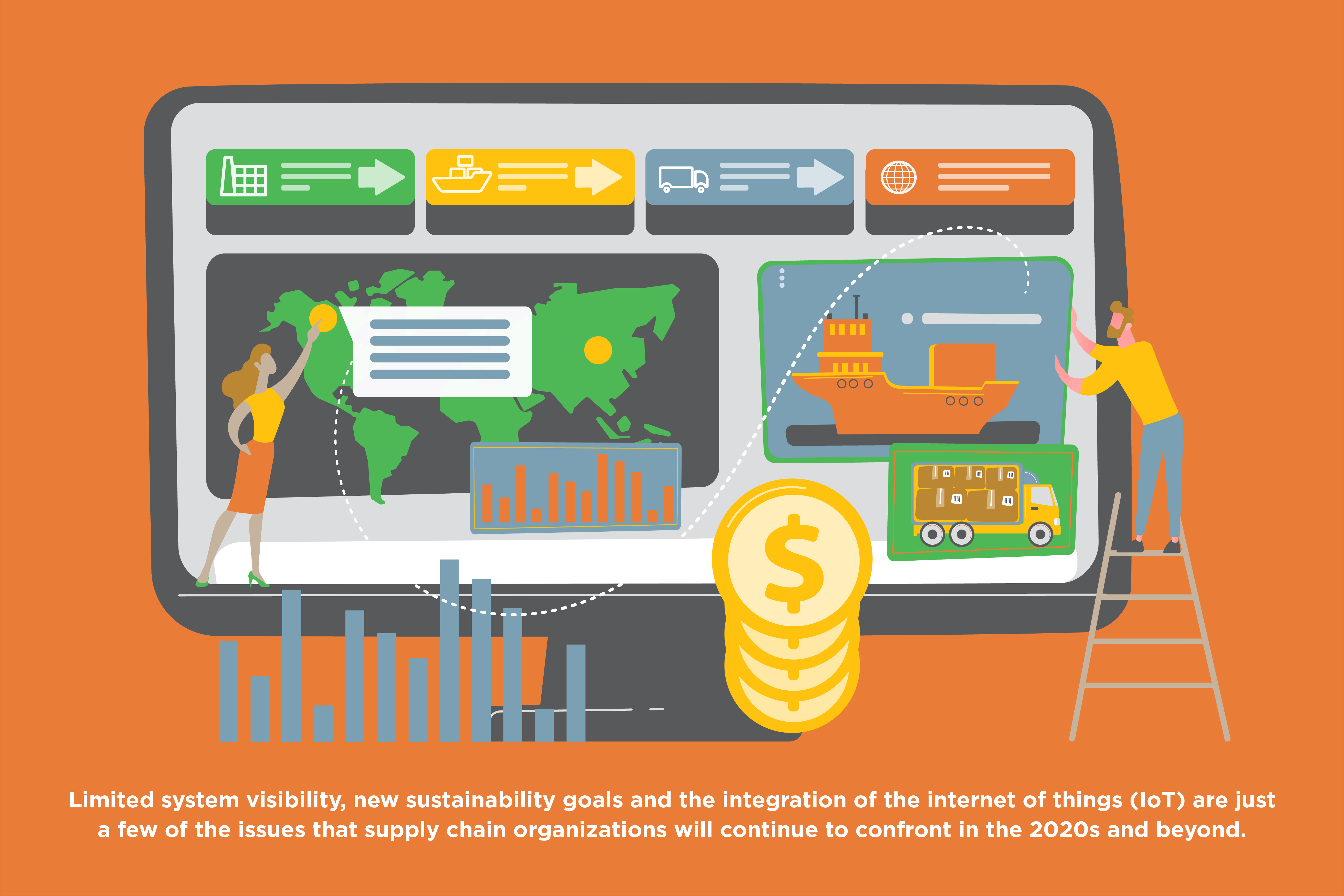From COVID-19 to the Suez Canal crisis of 2021, the supply chain management (SCM) sector has faced some high-profile disruptions in recent years. In reality, though, there are always challenges that SCM professionals need to navigate through. Limited system visibility, new sustainability goals and the integration of the internet of things (IoT) are just a few of the issues that supply chain organizations will continue to confront in the 2020s and beyond. Let’s examine some of the key trends in SCM right now and how companies are responding to them.

1. Falling costs and expanding use cases for IoT sensors
The rise of the IoT and its implications for SCM aren’t new developments, but falling costs for IoT sensors are. After years of hype, this IoT infrastructure has finally become sufficiently cost-effective to began supporting use cases such as:
- Digital twins: IoT sensors provide the critical data for creating and maintaining these digital representations of physical products and processes. For example, a digital twin can run simulations for a truck with specific configurations, without having to actually have that vehicle nearby.
- Real-time monitoring: Temperature-sensitive items such as vaccines require careful monitoring, which IoT sensors can handle. Because they’re so small, these sensors can easily be placed throughout supply chain checkpoints to provide detailed insights on current item temperatures and locations.
- Process automation: The Oracle Cloud SCM suite has been integral to IoT-driven automation in settings like factories. IoT sensors can automatically detect deviations from normal specifications and also connect to versatile application programming interfaces (APIs) or service oriented integration (SOA) to drive highly automated operations.
IoT infrastructure has also been floated as a complement to blockchain technology in helping root out counterfeit items. Blockchain can provide an immutable record of the actions taken on a product’s journey, as documented by IoT sensors along the way. Deviations from normal behavior may indicate counterfeits.
2. Expanding use of artificial intelligence and machine learning
Both artificial intelligence (AI) and machine learning (ML) can complement IoT infrastructure by enabling more extensive automation as well as smoother adaptation to evolving business requirements. AI refers to machines that can do human-like tasks such as make decisions, while ML is a type of AI involving programs that improve on their own.
Logistics Machine Learning within Oracle SCM Cloud is a prime example of how AI and ML have transformed supply chains. Using historical data, this solution enables accurate predictions of end-to-end transit times for direct shipments, which in turn allow logistics providers to deliver items more reliably and at lower cost.
Overall, AI and ML lead to more proactive supply chain operations. Paired with cloud integration and APIs/SOAs, these technologies give teams the visibility and awareness they need to make informed decisions about supply chain activities.
3. The drive to make supply chains more sustainable
According to McKinsey, 80% of the typical organization’s greenhouse gas emissions originate in its supply chain. On-road vehicles and warehouses, for example, are major sources of carbon pollution.
Some of the basic steps that companies are taking to make their supply chains more sustainable include:
- Pursuing a “circular economy” model, under which materials like pallets get regularly reused.
- Switching to renewable energy sources such as solar and wind power.
- Relying on energy-efficient LED lighting.
- Operating out of LEED-certified buildings.
- Using lift trucks powered by lithium-ion batteries or hydrogen fuel cells.
Beyond these measures, organizations have also looked to some of the aforementioned technological innovations, like IoT sensors and AI/ML, to identify areas for ecological improvement in their supply chains. Embedded sensors and digital twins, for instance, can provide clarity about how a process is currently functioning, including the amount of energy or other resources it’s consuming. With that data, decision makers can decide where to make more eco-friendly adjustments.

Many of our clients, like this pioneer in the online car retail industry, are reevaluating their supply chain operations. As your organization contemplates the future of its own SCM operations, Inspirage can provide the expert guidance and technical proficiency you need to ensure the right mix of Oracle solutions and integrations. Connect with our expert team to get started.